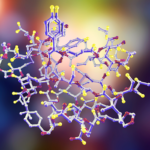Premenstrual syndrome – is there a role of dietary factors?
Premenstrual syndrome (PMS) is a common disorder of young women during their reproductive life. It is characterized by psychological features like mood swings, changes in behavior as well as physical features during the premenstrual period. These symptoms are relieved with the onset of periods. The exact cause of this condition is not known. There are multiple proposed mechanisms of this affliction and hence many methods of treatment. A symptom-free period after menstruation is essential to differentiate this condition from a psychiatric illness.
Symptoms of premenstrual syndrome
The clinical features usually appear from 25 to 35 years of age. This onset may be related to the use of oral contraceptives or after the first pregnancy. The symptoms of PMS are basically divided into physical and psychological. Some of the physical features include swelling and increased appetite, craving for sweets, pain in breasts, abdominal cramps, headache, constipation, swelling of legs, and weight gain. The psychological symptoms include agitation, anxiety, depression, reduced libido, emotional lability, lethargy, irritability, nervous tension, pessimism, and social isolation.
Causes of PMS
There is an imbalance in the ratio of estrogen to progesterone, which is noticed during the premenstrual period. An excess estrogen results in water retention and breast pain. Progesterone intake during this period provides relief. In some women, progesterone is increased during PMS and their symptoms subside after estrogen supplementation.
Another hormone implicated in causing PMS is angiotensin. There is an increased secretion of this hormone which results in water retention and electrolyte imbalance in the body. A raised level of aldosterone, which is secreted by the adrenal gland, acts in the same way as angiotensin.
Another study found evidence of a relation between PMS and poor thyroid function. These patients had depression during the premenstrual period, though their treatment with thyroid hormones is still controversial.
Dietary factors in PMS
It has been observed that women suffering from PMS consume more carbohydrates and dairy products. Refined carbohydrates like sugar improve mood when consumed during the premenstrual period. This probably acts by increasing the level of a neurotransmitter called serotonin in the brain. Magnesium deficiency has been linked to PMS. Western diets high in refined cereals lack magnesium. Low magnesium results in an increased aldosterone level in the blood and contributes to PMS as described above. It is also associated with increased insulin secretion which increases the craving for sweets. A deficiency of vitamin B6 results in a reduction in the synthesis of serotonin and dopamine in the brain. Dietary supplements of this vitamin have been found to be helpful in improving the symptoms.
Essential fatty acid deficiency causes breast pain and supplementation with evening primrose oil, which is a rich source of essential fatty acids, is used successfully in the treatment of PMS. Vitamin E supplementation has antioxidant properties and it reduces the production of inflammatory mediators in PMS. Vitamin E supplementation for two to three months or longer is very effective in relieving PMS symptoms. Zinc deficiency may be related to PMS as zinc is involved in the regulation of menstrual hormone activity, which may affect predisposition to PMS. Patients with PMS have a higher intake of calcium as they consume more dairy products. It was proposed that a high calcium intake may cause the psychological changes of PMS by calcium interferes with glucose utilization in the brain. A scientific study demonstrated that supplementation of oral calcium for 3 months improved depression and fluid retention in patients with PMS.
Premenstrual syndrome is a common disorder seen in young menstruating women. It is very distressing and affects the quality of life. Though the exact cause is not known, a lot of dietary factors are related. A healthy diet and regular exercise will certainly improve the ability of the person to better tackle this malady.




























